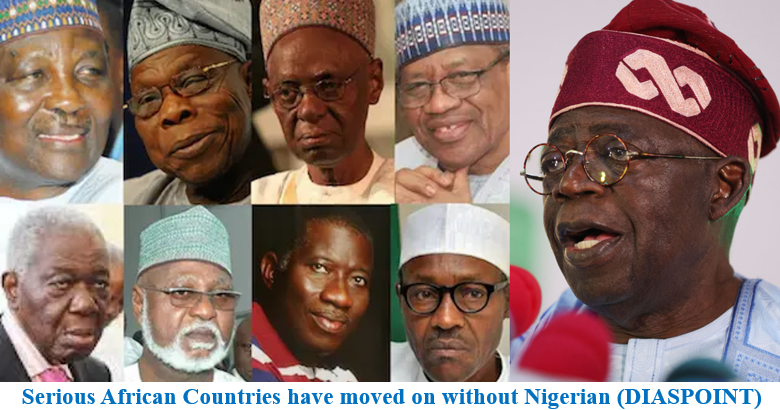Is Nigeria Able to Lead Africa?
Post By Diaspoint | June 4, 2024

Nigeria, often referred to as the “Giant of Africa,” holds a prominent position on the continent due to its large population, substantial economy, and influential cultural presence. However, the question of whether Nigeria is capable of leading Africa is multifaceted, involving political, economic, social, and regional dimensions. While Nigeria has the potential to be a leading force, various challenges must be addressed to realize this potential fully.
Economic Powerhouse
Nigeria’s economy is the largest in Africa, primarily driven by its oil and gas sector. The country’s vast natural resources, including crude oil, natural gas, and minerals, have positioned it as a crucial player in global energy markets. Additionally, Nigeria has a burgeoning tech industry, exemplified by Lagos’s reputation as a tech hub, and a growing middle class that contributes to its dynamic consumer market.
Economic leadership in Africa hinges on more than just resource wealth. Diversification and sustainable development are critical. Nigeria must address economic inequalities, infrastructure deficits, and corruption to harness its economic potential effectively. Improved governance and investment in education, healthcare, and technology can spur broader economic growth and stability, enabling Nigeria to set a strong example for other African nations.
Political Influence
Nigeria plays a significant role in African politics, being a founding member of the African Union (AU) and the Economic Community of West African States (ECOWAS). The country’s diplomatic efforts and peacekeeping missions have often been pivotal in regional stability. For instance, Nigeria’s leadership in mediating conflicts in Liberia, Sierra Leone, and The Gambia demonstrates its capacity for regional influence.
However, Nigeria’s internal political challenges can undermine its external leadership. Issues such as political corruption, insurgencies (e.g., Boko Haram in the Northeast), and ethnic and religious tensions detract from its ability to project stability and governance excellence. Strengthening democratic institutions, ensuring fair and transparent elections, and promoting national unity are essential steps for Nigeria to solidify its political leadership in Africa.
Social and Cultural Impact
Nigeria’s cultural influence in Africa and beyond is significant, driven by its vibrant film industry (Nollywood), music (Afrobeats), and literature. Nigerian culture resonates widely across the continent, promoting a sense of shared identity and cultural exchange. This soft power is a vital tool for leadership, fostering goodwill and pan-African solidarity.
However, to leverage this cultural influence effectively, Nigeria must address social challenges such as poverty, education, and healthcare. A socially cohesive and well-educated population can better contribute to and sustain Nigeria’s leadership role. Moreover, promoting cultural and educational exchanges can enhance mutual understanding and cooperation among African nations.
Regional and Global Dynamics
Nigeria’s strategic location and size make it a key player in regional and global affairs. Its leadership in ECOWAS, its active participation in the AU, and its involvement in global organizations like the United Nations position it as a bridge between Africa and the rest of the world. Nigeria’s voice on issues like climate change, trade, and security is increasingly important as Africa seeks greater integration into the global economy.
However, Nigeria must navigate complex regional dynamics and foster stronger relationships with its neighbors. Leading Africa requires building consensus, respecting the sovereignty of other nations, and promoting inclusive regional development. Nigeria’s success in balancing its national interests with regional responsibilities will determine its effectiveness as a continental leader.
Conclusion
Nigeria possesses many attributes necessary for leading Africa: a robust economy, significant political influence, cultural dynamism, and strategic importance. However, realizing this leadership potential requires addressing critical challenges such as economic diversification, political stability, social development, and regional cooperation. By fostering good governance, investing in human capital, and promoting unity, Nigeria can position itself as a model for African leadership and a driving force for the continent’s development and integration into the global community. The journey to leadership is complex, but with concerted efforts and strategic vision, Nigeria can indeed lead Africa towards a prosperous and stable future.
Read More from original source
